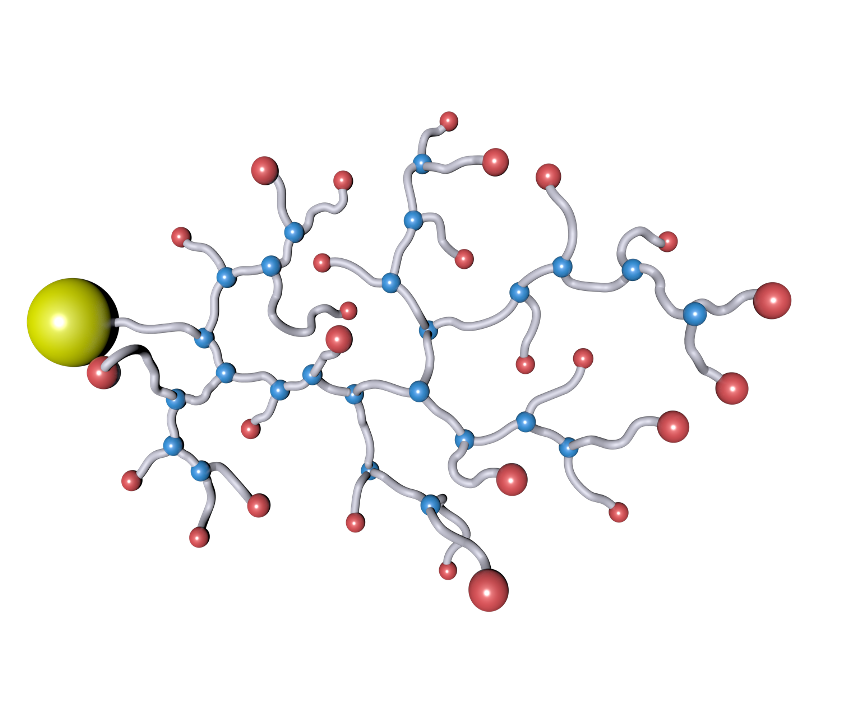From Manufacturing to Medication: How Polymers Revolutionize Numerous Industries With Their Advantages
Polymers, with their varied chemical structures and personalized properties, have actually arised as critical parts across a range of industries. From improving production processes to allowing groundbreaking advancements in medication, the impact of polymers reverberates everywhere. Their adaptability and convenience have not only reinvented item development in markets like auto and electronics but have actually additionally introduced a brand-new age of clinical innovations. As we check out the detailed methods which polymers have reshaped different fields, it becomes apparent that their benefits prolong past standard borders, providing a glimpse into a future where possibilities seem endless.
Versatility in Production
With their varied residential properties and versatility, polymers have dramatically boosted the production processes across numerous sectors. The adaptability of polymers in production is connected to their capacity to be built into complex forms, their light-weight nature, toughness, and resistance to deterioration. These properties make polymers an ideal selection for a vast variety of applications, from automobile and aerospace industries to medical care and electronic devices.
In the automobile sector, polymers are extensively utilized in manufacturing elements such as bumpers, dashboards, and interior trims as a result of their lightweight nature, which aids improve gas efficiency. Furthermore, their resilience and resistance to deterioration make them suitable for outside applications in construction and infrastructure tasks. In the healthcare market, polymers play an essential role in creating clinical devices, devices, and product packaging materials as a result of their biocompatibility and sanitation capabilities.

Improved Item Performance
Substantial improvements in product performance have been attained through the assimilation of polymers in various markets. Polymers contribute considerably to enhancing item efficiency due to their one-of-a-kind buildings and flexibility. In the auto industry, the usage of polymers in manufacturing elements such as bumpers and indoor components has caused lighter vehicles, enhanced gas efficiency, and boosted durability. The aerospace market gain from polymers in the manufacturing of lightweight yet strong materials for airplane, leading to enhanced performance and minimized upkeep prices - Polymers.
Additionally, in the electronic devices market, polymers play an important function in enhancing the efficiency of gadgets through their insulating properties, effect resistance, and versatility. This enables the advancement of smaller, much more efficient digital products that are also a lot more long lasting. In the clinical field, polymers are used to create advanced implants and drug delivery systems that use boosted biocompatibility and targeted therapy, eventually enhancing client outcomes.
Developments in Medical Devices
The application of polymers in the medical area has led to groundbreaking advancements in the growth of sophisticated medical tools. Polymers have actually reinvented the style and performance of medical tools by using distinct homes such as biocompatibility, flexibility, and durability. One remarkable advancement is using polymer-based materials in the production of implantable gadgets like synthetic Full Article joints, stents, and catheters. These devices are currently much more suitable with the human body, reducing the danger of rejection or damaging reactions.
Polymer composites have also allowed the production of lighter and much more comfortable prosthetics, enhancing the lifestyle for amputees. Furthermore, polymers with antimicrobial buildings are being integrated into clinical tools to stop infections and boost patient results. The advancement of innovative drug delivery systems utilizing polymer-based products has actually changed the therapy of numerous diseases by guaranteeing targeted and managed launch of drugs.
Medicine Delivery Advancements
In the realm of pharmaceutical improvements, unique drug distribution systems are reshaping the landscape of clinical treatment. These developments aim to see this site boost the efficiency and accuracy of medicine management while minimizing side results and improving patient compliance. Among the key innovations in drug shipment is the use of polymer-based carriers. Polymers supply a functional system for making distribution systems that can manage medication release rates, target particular tissues or cells, and protect the medicine from destruction in the body.
Nanotechnology has actually additionally played a crucial function in drug delivery innovations by allowing the development of nano-sized medicine providers. These nanocarriers can improve medicine solubility, prolong flow time in the body, and boost cellular uptake, ultimately bring about enhanced healing results. Furthermore, innovations in individualized medicine have actually resulted in the personalization of drug shipment systems based on private patient attributes, such as hereditary makeup or condition profile.

Lasting Solutions
Having laid the structure for improvements in drug shipment systems, the focus currently shifts in the direction of discovering sustainable remedies within the realm of polymer-based service providers. Sustainability has come to be an essential aspect of modern-day industries, consisting of medical care, driving the requirement for environment-friendly options. Polymers supply an appealing method for addressing sustainability difficulties as a result of their flexibility, biodegradability, great site and recyclability.
One secret aspect where polymers add to sustainability is in decreasing the ecological influence of clinical waste. Naturally degradable polymers can be made to break down naturally with time, reducing the build-up of non-degradable products in landfills. Additionally, the recyclability of specific polymers permits for the development of closed-loop systems that promote the reuse of sources, even more minimizing waste manufacturing.
Additionally, the usage of eco-friendly resources for polymer manufacturing, such as plant-based sources like corn or sugarcane, presents an opportunity to reduce reliance on fossil gas and reduced carbon exhausts. By harnessing the potential of polymers as sustainable services, markets can move towards even more ecologically pleasant techniques without endangering efficiency or performance.
Verdict
To conclude, polymers have substantially changed numerous fields, consisting of production and medicine, because of their flexibility, enhanced item efficiency, and ingenious applications in medical devices and drug distribution systems - Polymers. These innovations have actually caused the advancement of sustainable solutions that profit both industries and the setting. Polymers remain to play an important duty in driving technology and progress across various sectors, showcasing their importance in contemporary culture